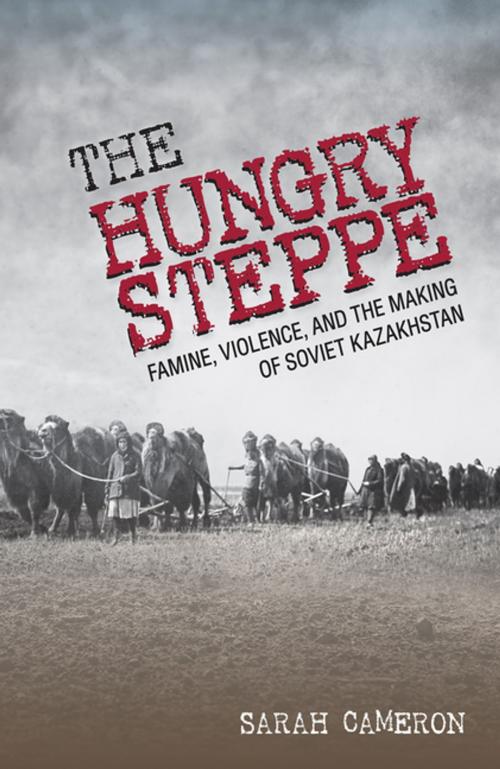The Hungry Steppe
Famine, Violence, and the Making of Soviet Kazakhstan
Nonfiction, History, Asian, Russia, Social & Cultural Studies, Political Science| Author: | Sarah Cameron | ISBN: | 9781501730450 |
| Publisher: | Cornell University Press | Publication: | November 15, 2018 |
| Imprint: | Cornell University Press | Language: | English |
| Author: | Sarah Cameron |
| ISBN: | 9781501730450 |
| Publisher: | Cornell University Press |
| Publication: | November 15, 2018 |
| Imprint: | Cornell University Press |
| Language: | English |
The Hungry Steppe examines one of the most heinous crimes of the Stalinist regime, the Kazakh famine of 1930–33. More than 1.5 million people perished in this famine, a quarter of Kazakhstan's population, and the crisis transformed a territory the size of continental Europe. Yet the story of this famine has remained mostly hidden from view. Drawing upon state and Communist party documents, as well as oral history and memoir accounts in Russian and in Kazakh, Sarah Cameron reveals this brutal story and its devastating consequences for Kazakh society.
Through the most violent of means the Kazakh famine created Soviet Kazakhstan, a stable territory with clearly delineated boundaries that was an integral part of the Soviet economic system; and it forged a new Kazakh national identity. But this state-driven modernization project was uneven. Ultimately, Cameron finds, neither Kazakhstan nor Kazakhs themselves were integrated into the Soviet system in precisely the ways that Moscow had originally hoped. The experience of the famine scarred the republic for the remainder of the Soviet era and shaped its transformation into an independent nation in 1991.
Cameron uses her history of the Kazakh famine to overturn several assumptions about violence, modernization, and nation-making under Stalin, highlighting, in particular, the creation of a new Kazakh national identity, and how environmental factors shaped Soviet development. Ultimately, The Hungry Steppe depicts the Soviet regime and its disastrous policies in a new and unusual light.
The Hungry Steppe examines one of the most heinous crimes of the Stalinist regime, the Kazakh famine of 1930–33. More than 1.5 million people perished in this famine, a quarter of Kazakhstan's population, and the crisis transformed a territory the size of continental Europe. Yet the story of this famine has remained mostly hidden from view. Drawing upon state and Communist party documents, as well as oral history and memoir accounts in Russian and in Kazakh, Sarah Cameron reveals this brutal story and its devastating consequences for Kazakh society.
Through the most violent of means the Kazakh famine created Soviet Kazakhstan, a stable territory with clearly delineated boundaries that was an integral part of the Soviet economic system; and it forged a new Kazakh national identity. But this state-driven modernization project was uneven. Ultimately, Cameron finds, neither Kazakhstan nor Kazakhs themselves were integrated into the Soviet system in precisely the ways that Moscow had originally hoped. The experience of the famine scarred the republic for the remainder of the Soviet era and shaped its transformation into an independent nation in 1991.
Cameron uses her history of the Kazakh famine to overturn several assumptions about violence, modernization, and nation-making under Stalin, highlighting, in particular, the creation of a new Kazakh national identity, and how environmental factors shaped Soviet development. Ultimately, The Hungry Steppe depicts the Soviet regime and its disastrous policies in a new and unusual light.















